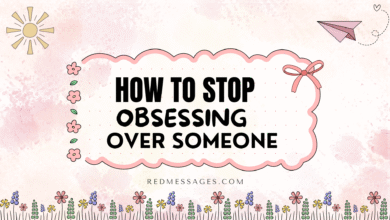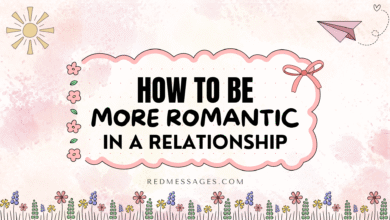10 Things To Do Before Marriage

So you’re getting married, congratulations! But before you start picking out centerpieces and arguing over the guest list, let’s chat about the stuff that actually matters. You know, the real deal behind building a marriage that’ll last longer than your wedding cake.
Look, I get it. When you’re head-over-heels in love, talking about the nitty-gritty details feels about as romantic as discussing tax returns.
But here’s the thing, I’ve been helping couples navigate these waters for over years now, and trust me when I say that the couples who tackle these conversations early are the ones still laughing together decades later.
After watching countless couples either thrive or struggle, I’ve noticed something: the ones who make it aren’t necessarily the most compatible on paper.
They’re the ones who did their homework before saying “I do.” They’re the couples who weren’t afraid to have those awkward conversations that make you squirm a little.
Ready to set yourself up for success? Let’s dive into the 10 essential things every couple should tackle before walking down that aisle.

1. Make Sure Your Values Align
This one’s huge, and I mean HUGE. Your values are basically your life’s GPS, they guide every major decision you’ll make together.
And if you’re both heading in completely different directions, well… that’s a recipe for some serious relationship turbulence.
I once worked with a couple where one partner valued adventure and spontaneity above everything else, while the other prioritized security and routine.
Neither approach was wrong, but they never talked about it. Three years into marriage, they were constantly butting heads over everything from vacation plans to career moves.
Here’s what you need to hash out:
Core Life Priorities:
- Family vs. career ambitions
- Financial security vs. living in the moment
- Traditional vs. progressive lifestyle choices
- Community involvement and social responsibility
Personal Growth and Goals:
- How important is personal development to each of you?
- Do you support each other’s individual dreams?
- What does success look like for your relationship?
The trick isn’t finding someone who shares every single value, that’s pretty unrealistic. It’s about understanding where you differ and figuring out if those differences are deal-breakers or just interesting contrasts that’ll keep life spicy.
Pro tip: Don’t just talk about this once and call it done. Your values might shift as you grow, so check in with each other regularly. What mattered to you at 25 might look different at 35.
2. Have The Money Talk
Ugh, money talks. About as fun as a root canal, right? But here’s the brutal truth, financial disagreements are one of the top reasons marriages fail. So let’s rip off that band-aid and get real about your money situation.
I’ve seen couples who lived together for years suddenly discover their partner had $50K in credit card debt after the wedding. Don’t be those people.
What You Need to Discuss:
Current Financial Picture:
- Income, debts, credit scores (yes, really!)
- Spending habits and financial triggers
- Investment accounts and retirement savings
- Any financial support for family members
Future Money Goals:
- Will you combine finances or keep them separate?
- How will you handle major purchases?
- Saving for a house, kids, retirement
- What’s your emergency fund goal?
Money Personalities:
- Are you a spender or a saver?
- How do you handle financial stress?
- Who’s better with budgets and bill-paying?
Here’s a real-world example: I worked with Sarah and Mike, who seemed perfect together until they started planning their future.
Sarah was a meticulous budgeter who tracked every coffee purchase, while Mike was more of a “money comes and goes” type. Instead of judging each other, they found a middle ground, separate “fun money” accounts and shared goals for everything else.
The key is transparency and finding a system that works for both of your styles. FYI, there’s no “right” way to handle money as a couple, there’s only what works for you two.
3. See Each Other’s Family
Family dynamics can make or break a marriage, and I’m not being dramatic here. The way your partner interacts with their family gives you a sneak peek into their emotional patterns, communication style, and what they consider “normal” in relationships.
Plus, like it or not, you’re not just marrying them, you’re joining their family ecosystem. And honey, some ecosystems are more… shall we say, challenging than others.
Why This Matters:
Understanding Their Background:
- How were conflicts handled in their childhood home?
- What family traditions are important to them?
- Are there any family dynamics that might affect your marriage?
- How close is your partner to their family?
Setting Expectations:
- How often will you visit or host family?
- What boundaries need to be established?
- How will you handle holidays and family events?
- What if you don’t click with certain family members?
I remember working with Jessica, whose partner came from a family that never talked about problems, they just swept everything under the rug.
Meanwhile, Jessica’s family hashed out every disagreement over Sunday dinner. Neither approach was wrong, but they needed to figure out their own communication style instead of defaulting to their family patterns.
Red flags to watch for: Family members who consistently disrespect your partner, toxic dynamics that your partner seems oblivious to, or families that don’t acknowledge boundaries. These issues don’t automatically doom your relationship, but they need to be addressed before marriage.
4. Spend Time Together
This might sound obvious, of course you spend time together! But I’m talking about intentional, diverse time where you see how each other handles different situations.
It’s easy to fall into date night routines where everything goes smoothly. But what happens when flights get canceled, restaurants mess up your order, or you get lost on a road trip? These moments reveal character in ways that perfect dates never will.
Experiences to Prioritize:
Stress-Testing Situations:
- Travel together (even if it’s just a weekend getaway)
- Cook elaborate meals together
- Tackle a home improvement project
- Navigate a crisis or unexpected challenge
Daily Life Simulation:
- Spend a week living together without the “honeymoon phase” energy
- Do mundane tasks together, grocery shopping, cleaning, paying bills
- See how you both handle being sick or exhausted
- Experience each other’s work stress and daily routines
Shared Interests and Growth:
- Try new hobbies together
- Take a class or learn something new
- Volunteer for a cause you both care about
- Challenge yourselves physically or mentally together
One couple I counseled, Emma and David, thought they were perfectly compatible until they went on a camping trip. Emma was a planner who needed structure, while David was spontaneous and go-with-the-flow.
They ended up having their first real fight over whether to follow their itinerary or explore off the beaten path. But here’s the beautiful part, they learned to appreciate each other’s strengths and found ways to compromise.
The goal isn’t to avoid all conflicts, it’s to see how you work through them together.
5. Talk About Kids
Oh boy, this is the big one. And I cannot stress this enough, you cannot assume you’re on the same page about children. I’ve seen too many marriages crumble because one person thought the other would “come around” to their way of thinking about kids.
This conversation goes way beyond “do you want kids or not?” (though that’s obviously crucial if you disagree). It’s about creating a shared vision for family life.
Essential Topics to Cover:
The Basics:
- Do you both want children? How many?
- What’s your timeline for having kids?
- How do you feel about adoption or fertility treatments?
- What if pregnancy complications arise?
Parenting Philosophy:
- What kind of parents do you want to be?
- How will you handle discipline and boundaries?
- What values do you want to instill in your children?
- How will you balance work and family life?
Practical Considerations:
- Who will handle which parenting responsibilities?
- How will you manage childcare and career demands?
- What’s your approach to education, public, private, homeschool?
- How will you handle disagreements about parenting decisions?
I worked with a couple, Maria and James, who both wanted kids but had completely different parenting styles. Maria grew up in a very structured household with clear rules, while James’s family was more relaxed and lenient.
Instead of assuming they’d figure it out later, they spent time discussing specific scenarios: “What if our teenager wants to go to a party?” “How do we handle screen time?” “What if our child struggles in school?”
These conversations helped them create a parenting approach that combined the best of both their backgrounds.
Important note: If one of you wants kids and the other doesn’t, this isn’t something you can compromise on. Don’t enter marriage hoping the other person will change their mind, it rarely happens, and it leads to resentment.
6. See A Marriage Counselor
Hold up, before you roll your eyes and think “we don’t need therapy, we’re happy!” hear me out. Pre-marital counseling isn’t about fixing problems; it’s about preventing them.
Think of it like getting a tune-up for your car. You don’t wait until the engine breaks down, you do regular maintenance to keep everything running smoothly.
What Pre-Marital Counseling Covers:
Communication Skills:
- How to fight fairly and productively
- Active listening techniques
- Expressing needs without attacking
- How to repair after conflicts
Expectation Setting:
- What does marriage mean to each of you?
- How will your relationship change after marriage?
- What are your non-negotiables?
- How will you maintain intimacy and connection?
Tool Building:
- Conflict resolution strategies
- How to make decisions together
- Building emotional intimacy
- Maintaining individual identity within marriage
I can’t tell you how many couples have told me that a few sessions of pre-marital counseling saved their marriage from issues they didn’t even know they had.
One couple, Alex and Sam, discovered through counseling that they had completely different definitions of “quality time.” Alex thought it meant doing activities together, while Sam just wanted undivided attention and conversation. Such a simple thing, but it could have caused years of frustration!
Choosing a counselor: Look for someone who specializes in pre-marital counseling and whose approach feels right for both of you. Many religious institutions offer pre-marital programs, or you can find secular therapists who focus on relationship preparation.
IMO, every couple should do this, regardless of how solid they feel. The tools you learn will serve you for decades.
7. Go On A Trip
There’s something magical about travel that strips away all the comfortable routines and reveals who people really are. When you’re tired, hungry, lost, or dealing with unexpected changes, your true personality comes out.
I always recommend couples take at least one significant trip together before getting married. Not a luxury resort where everything’s handled for you, but something that requires navigation, decision making, and adaptation.
Why Travel Together Matters:
Problem-Solving Under Pressure:
- How do you both handle stress and unexpected challenges?
- Who takes charge in crisis situations?
- Can you work together to find solutions?
- Do you support each other when things go wrong?
Daily Life Compatibility:
- Are you both morning people or night owls?
- How do you handle different energy levels?
- What are your travel styles, planned vs. spontaneous?
- How do you make decisions about money, food, and activities?
Communication in New Environments:
- How do you navigate disagreements when you’re stuck together?
- Can you express your needs clearly when you’re out of your comfort zone?
- Do you bring out the best or worst in each other under stress?
I’ll never forget Lisa and Tom, who seemed like the perfect couple until they took a two-week European backpacking trip. Lisa loved to plan every detail, while Tom preferred to wander and discover.
Their trip was full of tension because they hadn’t learned to appreciate each other’s travel styles. But instead of letting it ruin their relationship, they used it as a learning opportunity. Now they plan trips with a mix of structured activities and free exploration time.
Travel Tips for Couples:
- Choose a destination that’s slightly challenging but not overwhelming
- Plan some activities together and leave room for spontaneity
- Set a travel budget beforehand and stick to it
- Take turns making decisions about what to do each day
The goal isn’t to have a perfect trip, it’s to see how you handle imperfection together.
8. Learn Conflict Resolution
Here’s a reality check: you will fight. Sorry to burst your love bubble, but every couple argues. The difference between couples who make it and couples who don’t isn’t whether they fight, it’s how they fight.
Healthy conflict resolution is like a superpower in marriage. It turns potential relationship-ending battles into opportunities for growth and deeper understanding.
Healthy Fighting Rules:
Before the Argument:
- Establish ground rules for disagreements
- Agree on taking breaks when emotions get too high
- Commit to focusing on solutions, not blame
- Promise to avoid certain topics or language that cross the line
During the Conflict:
- Use “I” statements instead of “you” accusations
- Stay focused on the specific issue at hand
- Listen to understand, not to win
- Avoid bringing up past fights or unrelated problems
After the Argument:
- Take responsibility for your part in the conflict
- Make genuine apologies when you’ve made mistakes
- Discuss what you learned and how to handle similar situations better
- Reconnect emotionally before moving on
I worked with Rachel and Kevin, who came to me because their arguments always escalated into screaming matches.
Rachel was a processor who needed to talk things through immediately, while Kevin needed time to cool down before discussing problems. Once they learned to respect each other’s conflict styles, their fights became productive conversations.
Common Conflict Pitfalls to Avoid:
- The silent treatment (passive-aggressive behavior)
- Bringing up everything that’s ever bothered you
- Name-calling or character attacks
- Threatening to leave or end the relationship during fights
Red flags: If your conflicts involve any form of abuse (verbal, emotional, or physical), if one person always has to give in to keep peace, or if you can never reach resolution, please seek professional help.
The goal isn’t to never disagree, it’s to disagree in ways that strengthen your relationship instead of damaging it.
9. Define Your Religious Beliefs
Religion and spirituality can be deeply personal topics, but they significantly impact marriage, especially when it comes to raising children, celebrating holidays, and navigating major life decisions.
Even if you’re not particularly religious, it’s worth exploring each other’s spiritual backgrounds and beliefs. Sometimes people who consider themselves “not religious” still have strong feelings about certain traditions or moral frameworks that stem from their upbringing.
Important Areas to Explore:
Current Beliefs and Practices:
- What role does religion/spirituality play in your daily life?
- Do you want to attend religious services together?
- How important is it to share the same faith?
- What traditions do you want to maintain or create?
Family and Future Considerations:
- How will you handle different religious backgrounds in your families?
- What religious or spiritual education do you want for your children?
- How will you celebrate religious holidays?
- What happens if your beliefs change over time?
Moral and Ethical Framework:
- What guides your decision-making about right and wrong?
- How do your beliefs influence your views on marriage?
- Are there any religious practices that are non-negotiable for you?
- How do you handle differences in moral perspectives?
I once counseled Maria and John, who thought their different religious backgrounds wouldn’t matter because they were both “pretty relaxed” about it.
But when they started planning their wedding, conflicts emerged about the ceremony, guest expectations, and future traditions.
They ended up creating a beautiful blended approach that honored both of their backgrounds while establishing their own family traditions.
For couples with different beliefs: This doesn’t have to be a deal-breaker, but it requires extra communication, respect, and creativity. You’ll need to find ways to honor both perspectives while creating unity in your marriage.
For couples with similar beliefs: Don’t assume you’re automatically on the same page. Different denominations, levels of observance, and interpretations can create unexpected conflicts.
The key is approaching these conversations with curiosity and respect, not judgment or pressure to change.
10. Keep An Open Mind
Here’s the truth nobody talks about: marriage changes you. The person you are when you say “I do” won’t be exactly the same person you are five, ten, or twenty years later. And that’s actually a beautiful thing, if you approach it with the right mindset.
Keeping an open mind in marriage means being willing to grow, adapt, and discover new things about yourself and your partner throughout your journey together.
What Open-Mindedness Looks Like:
Embracing Growth:
- Supporting each other’s personal development
- Being curious about your partner’s changing interests
- Allowing room for mistakes and learning
- Celebrating each other’s achievements and evolution
Handling Surprises:
- Staying flexible when plans change
- Being willing to try new things together
- Adapting to life’s unexpected challenges
- Finding opportunities in difficulties
Communication and Understanding:
- Listening without immediately judging
- Asking questions instead of making assumptions
- Being willing to see situations from your partner’s perspective
- Admitting when you’re wrong and learning from it
I think about my clients Sarah and Mike (different from the earlier Sarah and Mike!). When they got married, Sarah was focused on building her career in finance, while Mike was passionate about environmental activism.
Five years later, Sarah discovered a love for sustainable living through Mike’s influence, and Mike learned about financial planning from Sarah. They didn’t change who they were fundamentally, but they allowed each other to expand their worlds.
Practical Ways to Stay Open-Minded:
- Regularly check in with each other about dreams and goals
- Try each other’s hobbies or interests occasionally
- Be willing to revisit decisions as circumstances change
- Practice saying “tell me more about that” instead of immediately disagreeing
Remember: Open-mindedness doesn’t mean you have to agree with everything or give up your own identity. It means approaching your marriage with curiosity, flexibility, and a willingness to grow together rather than apart.
5 Things You Must Discuss Before Marriage
Now that we’ve covered the major preparation steps, let’s dive into five specific conversation topics that absolutely cannot wait until after the wedding. These are the discussions that can prevent years of conflict and confusion down the road.
1. Family Beliefs and Traditions
Every family has its own unique culture, spoken and unspoken rules about how relationships work, how conflicts are handled, how love is expressed, and what’s considered important in life.
Understanding each other’s family cultures helps you create your own family identity while respecting where you both came from.
Key Areas to Explore:
Communication Styles:
- Does your family talk openly about problems or avoid conflict?
- How do your families show affection and support?
- What topics are considered off-limits in your family?
- How are major decisions made in your family?
Traditions and Expectations:
- Which holiday traditions matter most to each family?
- How often does your family expect to see you?
- Are there specific roles or responsibilities family members are expected to fulfill?
- What cultural or ethnic traditions do you want to carry forward?
Values and Priorities:
- What does your family consider most important, career success, family time, financial security, community involvement?
- How does your family handle money, work, and life balance?
- What are your family’s views on marriage, parenting, and gender roles?
I worked with a couple where one partner’s family always celebrated birthdays with big, elaborate parties, while the other family preferred quiet, intimate celebrations.
Sounds minor, right? But it caused tension for years until they talked about what celebrations meant to each of them and found a compromise.
Creating Your Own Traditions: Remember, understanding your family backgrounds doesn’t mean you have to recreate them. Use these conversations to decide which traditions you want to keep, which ones you want to modify, and what new traditions you want to create together.
2. Parenting Style
If you want children, having detailed conversations about parenting philosophy before marriage can save you from major conflicts later. Parenting brings out deep-seated beliefs about discipline, education, independence, and values that you might not even realize you have until you’re in the thick of it.
Discipline and Boundaries:
Approach to Rules:
- Are you strict with rules or more flexible?
- How do you handle it when children test boundaries?
- What’s your view on natural consequences vs. imposed punishments?
- How will you present a united front when you disagree?
Communication with Children:
- How will you handle difficult conversations with kids?
- What’s your approach to explaining adult problems to children?
- How much should children be involved in family decisions?
- How will you teach emotional intelligence and empathy?
Education and Development:
Learning Philosophy:
- What’s most important, academic achievement, creativity, social skills, character development?
- How involved will you be in your children’s education?
- What’s your view on extracurricular activities and how many is too many?
- How will you handle learning differences or challenges?
Independence and Protection:
- At what age should children have certain freedoms?
- How will you balance protecting your children with letting them learn from mistakes?
- What’s your comfort level with risk-taking and adventure?
- How will you prepare them for adulthood?
One couple I counseled, Jennifer and Mark, discovered they had completely different views on children’s privacy. Jennifer believed kids deserved privacy and independence from a young age, while Mark felt parents should monitor everything until children proved they were trustworthy.
They worked together to find an approach that built trust gradually while maintaining appropriate oversight.
3. Money Matters
We touched on finances earlier, but let’s get really specific about the day-to-day money management decisions that can cause friction in marriage.
Daily Money Decisions:
Spending Philosophies:
- What constitutes a “big purchase” that requires discussion?
- How much can each person spend without consulting the other?
- What are your priorities, experiences vs. things, saving vs. enjoying now?
- How do you handle different comfort levels with debt?
Financial Responsibilities:
- Who will handle which financial tasks, bill paying, budgeting, investments?
- How will you make decisions about major purchases like cars or home improvements?
- What’s your plan if one person can’t work due to illness or job loss?
- How will you handle financial support for aging parents?
Long-Term Financial Goals:
Building Wealth:
- What are your retirement goals and timeline?
- How much risk are you comfortable with in investments?
- Do you want to own property, and where?
- What’s your plan for children’s education expenses?
Financial Emergencies:
- How much should you have in emergency savings?
- What constitutes a financial emergency worth dipping into savings?
- How will you rebuild if you face a major financial setback?
- What’s your insurance strategy for protecting your family?
I remember working with Amy and Chris, who had similar incomes but completely different money personalities.
Amy was a meticulous planner who wanted to save for every possible scenario, while Chris believed in living comfortably and trusting that they’d figure out future challenges when they arose.
Instead of judging each other’s approaches, they found a middle ground, they automated savings for Amy’s peace of mind and budgeted fun money for Chris’s spontaneous nature.
4. Handling Relationships with In-Laws
In-law relationships can be one of the most challenging aspects of marriage, but they don’t have to be. The key is setting clear boundaries and expectations before problems arise.
Boundary Setting:
Time and Involvement:
- How often will you visit or host family members?
- What level of involvement will parents have in your marriage decisions?
- How will you handle unsolicited advice or criticism?
- What information about your marriage is private vs. what you’ll share with family?
Holiday and Special Events:
- How will you divide time between families during holidays?
- Who gets priority for major events and celebrations?
- What if family events conflict with your own plans or values?
- How will you handle gift-giving expectations and financial pressures?
Conflict Resolution:
When Problems Arise:
- What if your partner’s family members are consistently rude or disrespectful to you?
- How will you handle it if your partner doesn’t defend you against family criticism?
- What if you genuinely don’t like certain family members?
- How will you protect your marriage from family drama or manipulation?
Loyalty and Support:
- When does loyalty to family cross the line into betraying your marriage?
- How will you support each other when dealing with difficult family situations?
- What if family members refuse to respect your boundaries?
- How will you make decisions when your partner and their family disagree?
I once worked with Nicole and Brad, whose marriage was being strained by Brad’s mother’s constant criticism of Nicole. Brad didn’t want to hurt his mom’s feelings, so he avoided confronting the issue. Nicole felt unsupported and resentful.
Once they learned to communicate about this challenge, Brad was able to set loving but firm boundaries with his mother while making Nicole feel protected and valued.
Remember: Your marriage comes first. While family relationships are important, they shouldn’t undermine the health and happiness of your partnership.
5. Understanding Compromise
Successful marriage isn’t about finding someone who agrees with you on everything, it’s about finding someone who’s willing to work through disagreements in healthy, loving ways.
Learning to compromise before marriage sets the foundation for decades of successful problem-solving together.
Healthy Compromise Principles:
What Compromise Looks Like:
- Both people give up something to reach a solution that works for both
- Everyone feels heard and valued, even if they don’t get everything they want
- Solutions address the underlying needs, not just the surface-level disagreements
- Both partners feel good about the resolution, not resentful or bitter
What Compromise Doesn’t Mean:
- One person always giving in to keep the peace
- Ignoring your own needs to make your partner happy
- Accepting solutions that violate your core values or boundaries
- Keeping score of who compromised more recently
Areas Where Compromise Skills Matter:
Daily Life Decisions:
- How clean to keep the house and who does which chores
- How to spend free time and weekends
- What to watch on TV, where to eat, how to decorate
- How much social time vs. alone time you need as a couple
Bigger Life Choices:
- Where to live and when to move
- Career decisions and work-life balance
- How to spend money and what to prioritize
- How to handle extended family and social obligations
Building Compromise Skills:
Practice Active Listening:
- Really try to understand your partner’s perspective before jumping to solutions
- Ask questions to clarify what they need and why it’s important to them
- Summarize what you heard to make sure you understand correctly
Focus on Underlying Needs:
- Instead of arguing about specific solutions, talk about what each person is trying to achieve
- Look for creative solutions that meet both people’s core needs
- Be willing to try solutions temporarily to see how they work
I think about Rebecca and Tyler, who had completely different approaches to social life. Rebecca was an extrovert who wanted to go out with friends multiple times per week, while Tyler was an introvert who preferred quiet evenings at home.
Instead of one person always sacrificing for the other, they found a rhythm, two social activities per week that they attended together, one night where Rebecca went out with friends while Tyler stayed home, and several quiet nights together. Both of their needs were met without either person feeling overwhelmed or deprived.
The key to successful compromise: Make sure both people feel like they’re gaining something valuable, not just giving things up. The best solutions leave both partners feeling supported and understood.
Final Thoughts
Whew! That was a lot, wasn’t it? But here’s the thing, every single one of these conversations is an investment in your future happiness together.
But after seven years of helping couples navigate marriage, I can tell you with absolute certainty: the couples who have these conversations before marriage are the ones who are still crazy about each other decades later.
Your Next Steps:
- Don’t try to tackle everything at once (you’ll both get overwhelmed)
- Pick one topic per week to discuss thoroughly
- Approach these conversations with curiosity, not judgment
- Consider working with a counselor to guide you through the trickier topics
- Remember that these are ongoing conversations, not one-time checkboxes






